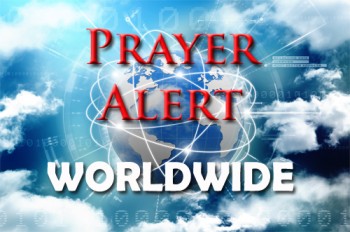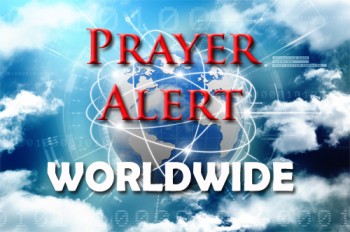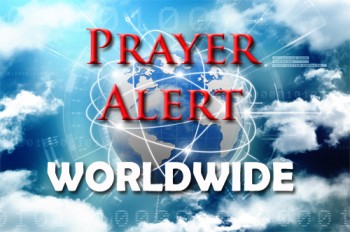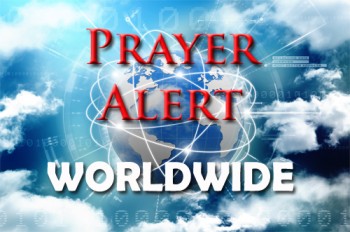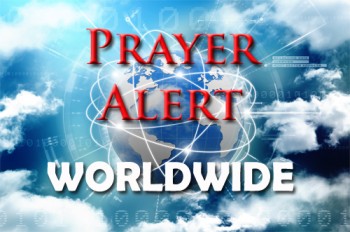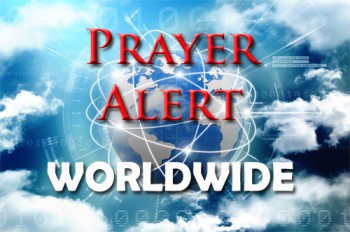Displaying items by tag: Kenya
Corrupt Kenyan police found guilty
This week the International Justice Mission invites us to join in praising God for a huge step forward in the class-action lawsuit that IJM Kenya helped bring against police, demanding greater accountability. One of the requests in the petition has been granted, and the court has ordered the inspector general to investigate 22 cases of police killings that were documented and presented as part of this petition. This case is important because it shows that the Kenyan government can be held accountable for the actions of its officers.
Kenya: bracing for locusts’ return
Kenya’s locust problem hasn’t gone away. In fact, Kenyans could see a third generation of the insects destroy vegetation across the country. This is the worst locust outbreak for the region in 70 years. Locusts have already caused a great deal of destruction in Kenya and surrounding countries this year. Favourable weather conditions could contribute to a return of the swarm. The last one found a route through the Rift Valley, the breadbasket of Kenya. They devastated everything that was green as they moved; they also left eggs to hatch later.
Kenya: calls for advice on abortion
The Kenyan Senate is calling for submissions on the Reproductive Healthcare Bill currently before them, which legalises abortion up to birth. There has been an outcry among Kenyan Christians over this bill; it seeks to legalise abortion carried out by a doctor, nurse or midwife acting alone, a ‘trained health professional’. The international abortion lobby and their NGO allies will be emailing their opinions in droves. There is money to be made if abortion becomes legal in Kenya. The time is short for objections to be presented as the deadline is Monday 17 August. The published notice does not specify that only Kenyans can respond, so we can pray that many Godly, informed responses will be made against this bill from concerned individuals across the nations.
Covid conversions
Jonas is a Kenyan church planter and respected leader in his village. When Kenya shut down due to coronavirus villagers lost their jobs and income, food prices rose and families struggled. Jonas saw that they not only needed Jesus, they needed help. He used his wages to buy food for the needy. Others were inspired by his generosity and donated food to be distributed to vulnerable families. Other church planters joined him in food aid and sharing Jesus' love. The results were astounding. 863 people heard the Good News, 211 received Christ. A Muslim man named Aasir lost his job and his home. Jonas took them in. Aasir saw what it was like to walk in a relationship with Jesus, day in and day out, and he also surrendered his life to Christ.
Kenya: ‘mobile church’ in lockdown
Kenya's government closed all churches in order to prevent further spread of coronavirus. So Rev Paul Macharia from All Saints' Cathedral has taken church services on the road. They travel to apartment blocks and provide sermons and music from the street below; allowing people to attend church while being able to maintain social distancing rules to tackle the new pandemic. This government-approved safe service is nicknamed B2B, ‘Balcony to Balcony’, taking place every Sunday, using amplifiers and loudspeakers. It has become popular, with large turnouts of families on their balconies.
East Africa: triple tragedy
Torrential rains causing floods and landslides displaced 100,000 people and killed about 200 in Kenya. Floods destroyed 8,000 acres of crops, and the extreme rainfall will continue until the end of May. In Uganda, a river burst its banks, causing people to flee for safety. The waters of Lake Victoria have risen to unprecedented heights, forcing shoreline communities to abandon their homes. Rwanda, too, has seen houses, roads, and crops destroyed, and many killed by mudslides. At the same time, trillions of locusts have descended on the region. They can travel over 100 miles a day. There are 18 separate swarms in Kenya at present, and weather conditions are expected to favour breeding, so that a third generation could hatch in June and July. Added to these two tragedies, coronavirus is spreading among huge numbers of displaced people and closed borders are delaying delivery of pesticides to locust-affected areas.
Kenya: police abuse of power
In many places, police not only fail to protect people in poverty from violence, but they are violent predators themselves. Millions of the most vulnerable people in the world live in fear of police who extort bribes and brutalise innocent citizens. This has increased during coronavirus curfews. In Kenya it is easy for a corrupt or incompetent police officer to falsely accuse and imprison or even kill an innocent person. As measures have been put in place to prevent the spread of coronavirus, there has been a spike in police abuse while enforcing the night curfew. The government’s independent policing oversight authority has documented at least 35 cases of police brutality in connection to the curfew enforcement, including twelve deaths. Other agencies report at least one death a night in the communities which the justice centres monitor.
Africa: locusts, drought, famine
Somalia has declared a national emergency as desert locusts destroy vegetation. An average swarm containing 40 million insects can travel 150 km in 24 hours, devouring enough food to feed 34 million people in that time. The UN said it is a race against time to tackle this invasion amidst ongoing humanitarian challenges. A spokesman said, ‘We do have a chance to nip this problem in the bud, but that’s not what we’re doing at the moment.’ Kenya’s food security is threatened, particularly communities keeping livestock on endangered pastures. Swarms crossed into Uganda on 9 February, and Tanzania and South Sudan are now on the UN’s ‘watch list’. Also, insufficient rain means that over two million Somalis will need emergency food aid this year after the worst harvest in 25 years. 300,000 were displaced in eight months; many have headed for the capital, Mogadishu. Six million Kenyans are food-insecure, while seven million Zimbabweans need aid after successive droughts and an inflation rate of 300%. Urban families are feeling the pinch of soaring prices. See
From Maasai herdsboy to archbishop
He was an uneducated Maasai boy, expected to herd cows all his life. But when he was nine the boys in his village were told to attend school and he learnt about Jesus. His curiosity about faith grew. Next, he was sponsored through children’s charity World Vision; an overseas family supported him with simple and life-changing gifts. During a severe drought, World Vision fed the entire family. When the rains finally came, they helped them to grow their own food. Then his life truly shifted, and God took him on a journey he never could have imagined. To read his inspiring faith-filled story, click the ‘More’ button.
Horn of Africa: flood devastation
Increased temperatures in the Indian Ocean have caused heavy rainfall and widespread flooding and destruction in different countries. In Kenya 29 people were killed in flash floods, nearly 12,000 have been displaced, and agriculture is hard hit, with 10,000+ livestock animals drowning. Caritas has appealed for food, first aid, and funds to distribute to the needy. In South Sudan, Bishop Majwok has requested the government to declare a state of national disaster as 283,000 square kilometres of his diocese are under water. Rains have devastated the country since July. Wet weather has worsened the humanitarian situation in 32 counties, where over three million people already needed assistance. In Somalia over 182,000 people are homeless due to flooding; most are from the central town of Beledweyne, where the UN reports people drowning. East Africa's rainy season, which runs from October to December, is likely to be unusually wet this year due to a process known as Indian Ocean Dipole (similar to the Pacific El Nino) by which atmospheric humidity is dumped inland as rainfall.

